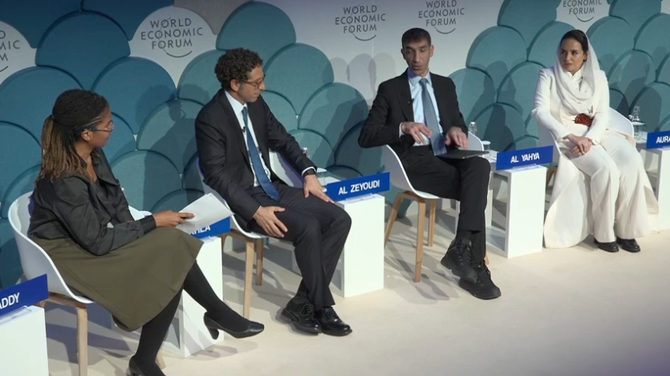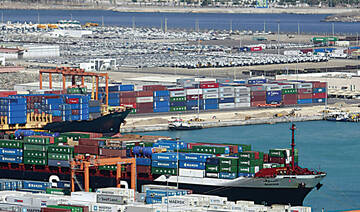DUBAI: While smart technologies unleash opportunities in investment and trade, concerted efforts must seek to bridge the “AI divide” in developing countries, a World Economic Forum panel heard on Thursday.
Deemah Al-Yahya, secretary-general of the Digital Cooperation Organization, said the need for energy, computing power and talent to activate AI would expand the digital gap in the developing world.
“An AI-generated image consumes more energy than charging your smartphone. That’s going to cause a great challenge for developed countries, so let alone developing countries that do not even have reliable energy.”
She added: “Another factor is who is going to get access to the computing power, considering the supply chain and cost? How can talents access the computer power to produce algorithms, local content and innovation?”
According to UN figures, 2.7 billion people do not have access to the Internet, with AI growth threatening to widen the digital gap.
However, using trading digital assets can increase access to new technologies, including AI, quantum computing and blockchain, in the global south, Al-Yahya said.
Highlighting the varying degrees of advancement of digital infrastructures among countries, Al-Yahya stressed harmonizing collaboration and bridge communication between the public and private sector, which served as the drivers of the digital economy.
One of the Digital Cooperation Organization’s mandates is to harmonize policies and regulations among 16 member states from Asia, Europe, Africa and the Middle East to expand technology use and grow their digital economy.
Addressing the benefits of AI in improving efficiency and reducing errors, Thani Ahmed Al-Zeyoudi, UAE minister of state for foreign trade, highlighted synergies and links to different tech systems, even within the same country.
“Many of those technologies are under deployment, but in various scattered ways. Each stakeholder is following their own way when it comes to customers, procedures and managements system,” said Al-Zeyoudi, highlighting the role of governments in implementing regulations that put AI to good use and ensure communication across stakeholders.
He addressed the UAE’s export of technologies to Africa, noting that the private sector took the lead in such initiatives.
“To avoid fragmentation as governments, we need to take the lead by putting (in place) a regulatory system that ensures that the private sector has the freedom to start doing their job, get the funding whenever required, and support them in talking to the right stakeholders,” he said.
















